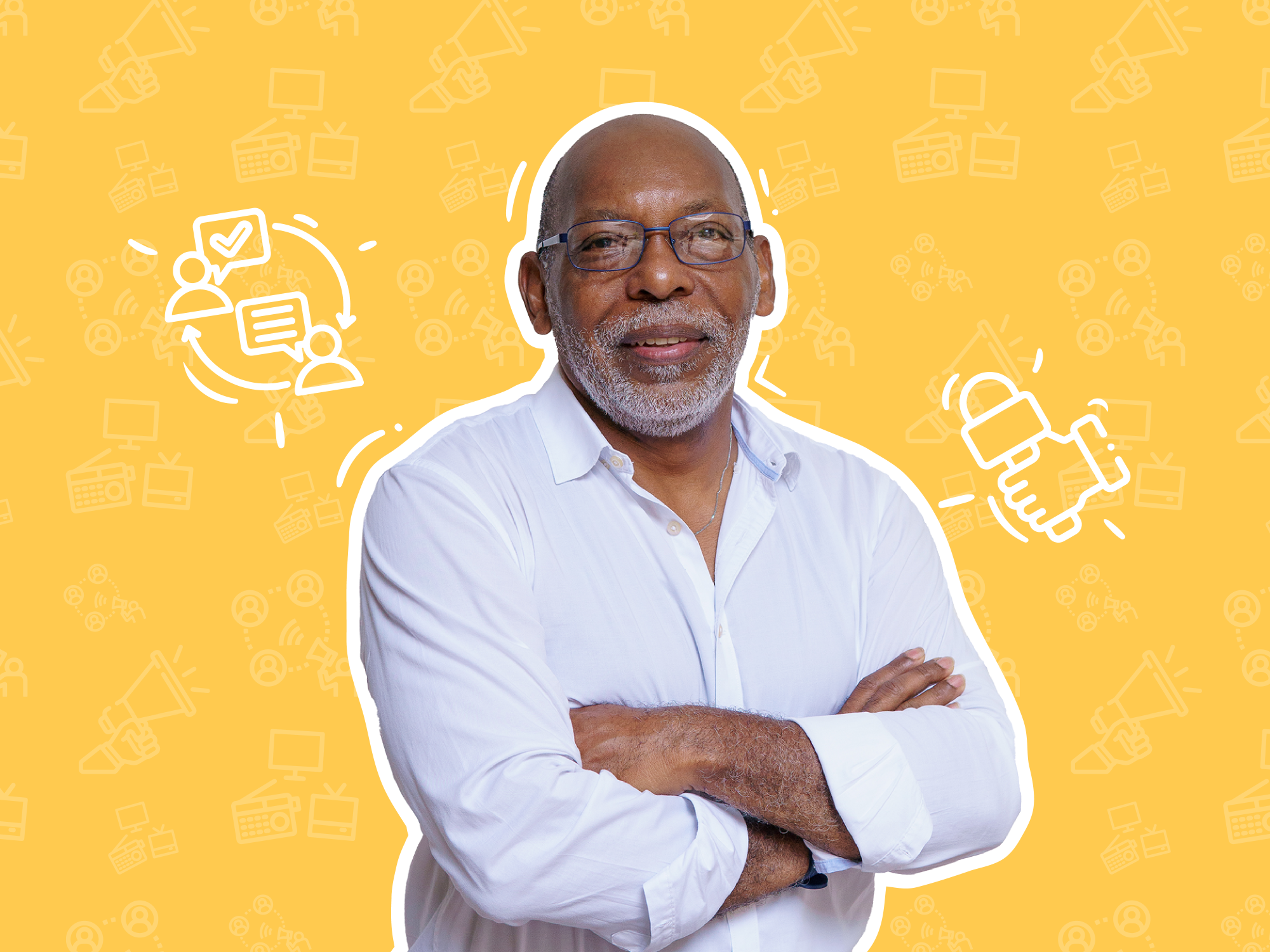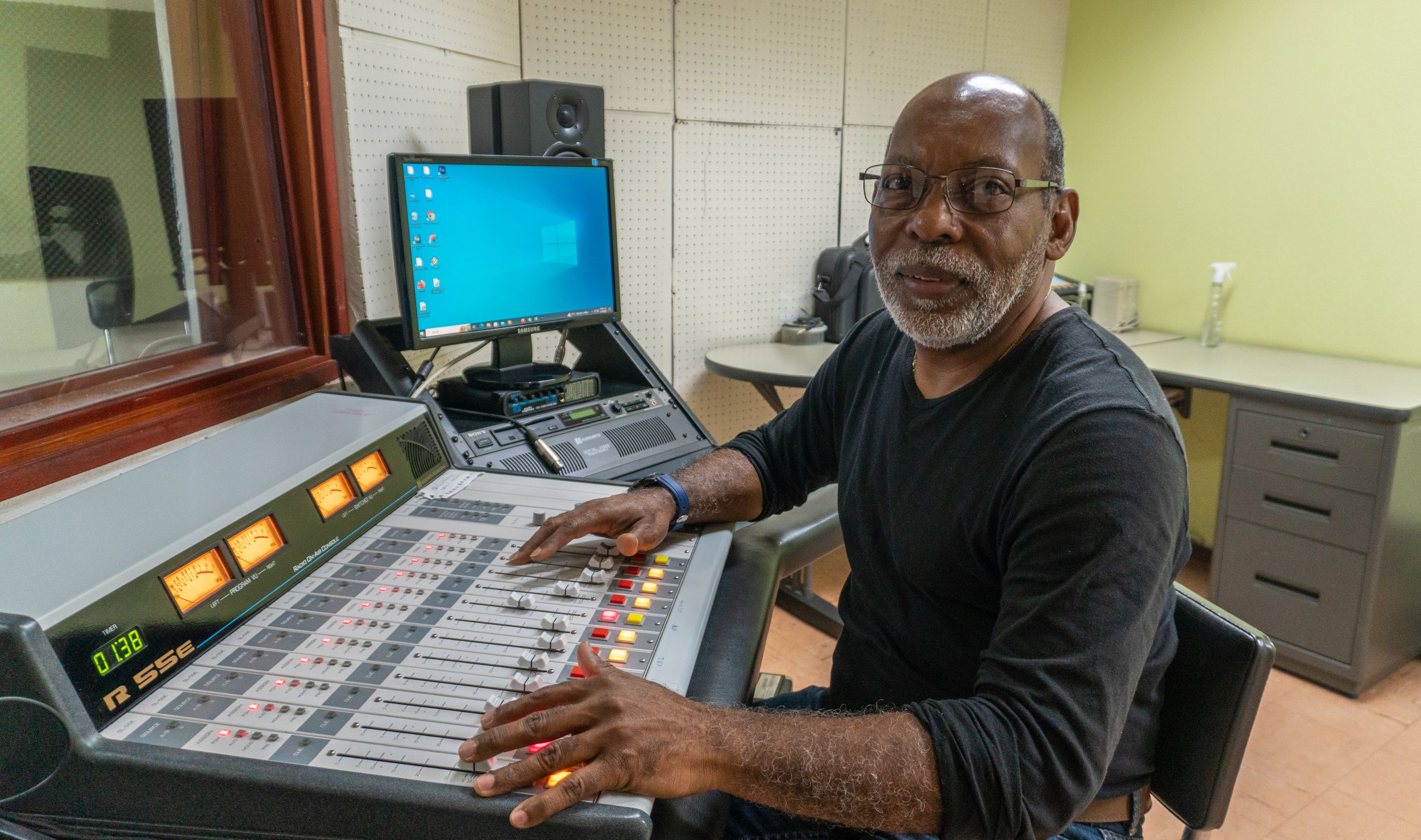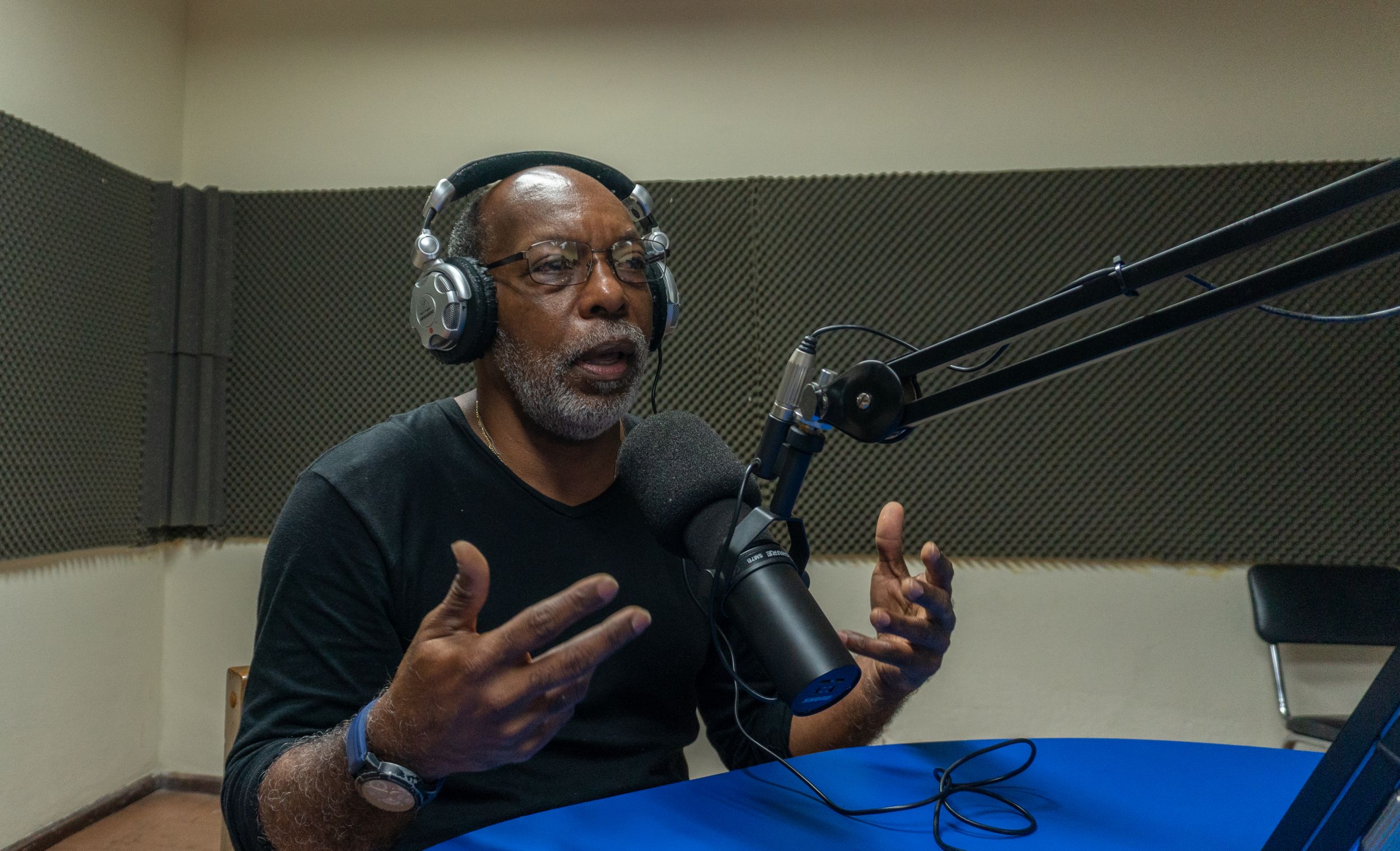News
24 Years Guiding Voices and Telling Stories… This Is the Story of an Iconic Professor at Our University
Since October 2001, Professor Giezzie Lasso Agredo has dedicated his life to training communicators at the University of Cauca, leaving a lasting impact on generations of students passionate about radio. His career in communication and journalism is a true testament to vocation and passion for sound and words. That’s why, in the context of Journalist’s Day in Colombia and World Radio Day, we invite you to learn more about his story.
Every February 9, Colombia pays tribute to those who dedicate their lives to building society through journalism—a fundamental profession that has been cultivated at this university for nearly 26 years. Time flies, doesn’t it? Throughout this period, Unicaucano’s goal has been to train ethical, critical, and well-rounded professionals, many of whom now practice journalism with commitment and passion. In this context, it would be impossible not to acknowledge those who have been part of this journey and, through hard work, have made history—like Professor Giezzie Lasso, who for 24 years has shaped new generations of communicators. These professionals, like their mentor, share a deep love for the magic that can be transmitted through the airwaves of that revolutionary invention that also has its own global celebration in February: radio!

Provided photo
Professor Giezzie’s interest in communication was born at home, amid the sounds of the radio his mother listened to and the stories that surrounded him as a child. Over time, that curiosity turned into practice when he had the opportunity to participate in an unlicensed radio station in his hometown of Pradera, Valle del Cauca. His passion for radio grew, and despite financial difficulties and his rural family’s initial resistance, he managed to enroll at the University of Valle. There, courses such as Sociology, Anthropology, and Culture and City broadened his perspective and equipped him with new tools to understand and narrate the world—completely inspiring!
When the talented Giezzie began his professional career, he encountered a harsh reality that many journalists face. "One of the most impactful moments for me was working at a newspaper in Cali right after university. It was my first paid job as a writer. It was a sensationalist paper, and I was shocked one day when there were no murders in Cali. That day, the newsroom chief came in and said: ‘We’re in crisis; there are no deaths—what are we going to write about?’ That was the moment I thought, ‘I don’t belong here,’ and I resigned. It was an ethical decision because journalism isn’t about waiting for tragedy to happen to have something to write about." With these words, our protagonist made clear his rejection of sensationalism and reaffirmed his commitment to responsible and ethical journalism.

Provided photo
Reflecting on his career, Professor Giezzie recalls one of his most fulfilling experiences outside of academia: coordinating a network of radio stations along Colombia’s Pacific coast as part of a UNICEF and CVC project. "Something that amazed me was the incredible ability of Pacific coast communities to create dramatized stories. At the university, it can take an entire semester for students to produce a dramatized piece, but there, they do it in 30 minutes. They ask, ‘What’s the idea?’ They gather, discuss—passionately, energetically, even seeming to argue—but within half an hour, they tell me, ‘Professor, it’s ready,’ and they start performing. It’s incredible," he recalls, emphasizing the richness of oral tradition in these communities and their astonishing ability to bring stories to life.
Thanks to his extensive experience in various contexts, Professor Giezzie encourages his students to engage with sound in new ways, offering this piece of advice: "Movies should be listened to as much as they are watched. Try paying attention to the soundtrack—don’t just take for granted that the audio is glued to the visuals. Be aware that there are sounds, layers, and sonic perspectives within those images. If you approach films this way, you’ll enjoy them much more."

Provided photo
He also reflects on life after university and calls on students who wish to pursue journalism to rethink the profession. Journalism today faces delegitimization and attacks, making it even more urgent to train professionals committed to ethics and truth. "There’s a hegemony being imposed by centers of power. I would tell students that there are important voices to follow and that we must think beyond the imperial narrative. We need to resist by practicing journalism that tells stories from the perspective of the people and that brings hope. Today, we see widespread disengagement—people say, ‘I don’t want to know what’s happening in the world.’ That’s exactly what the powerful want: for people to be indifferent. Just think about Gaza—over 150 journalists have been intentionally killed. In the U.S., the war on journalism is different; instead of bombs, they cut funding, discredit reporters, and issue threats—all tactics aimed at silencing journalism," he warns, expressing deep concern about the current landscape.
Through this story, we link two special dates: Journalist’s Day in Colombia and World Radio Day, celebrating how proud we are at the University of Cauca to have professors like Giezzie Lasso. He has built a teaching approach based on learning through experimentation—a memorable educator who has inspired hundreds of students with his high standards and passion for quality journalism. His commitment to sound-based storytelling and independent journalism has encouraged generations of young people to explore new ways of narrating stories, many of whom are now respected professionals in various media and organizations at both local and national levels. His message to the next generation of journalists is clear: stay informed, read, explore the world, and never lose your sense of wonder at the power of sound and words.
With 24 years in the classroom, Giezzie Lasso continues to train storytellers with the same passion that led him, decades ago, to discover his calling.
Written by: Communications Management Center

